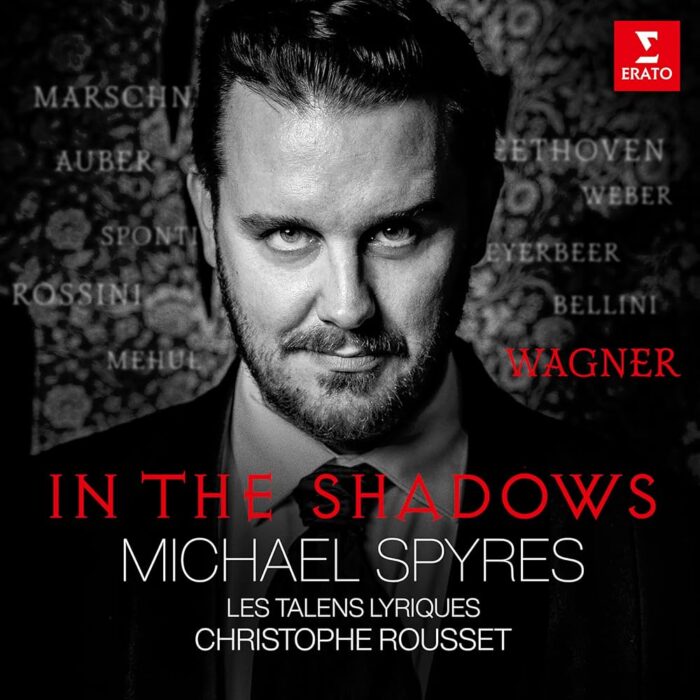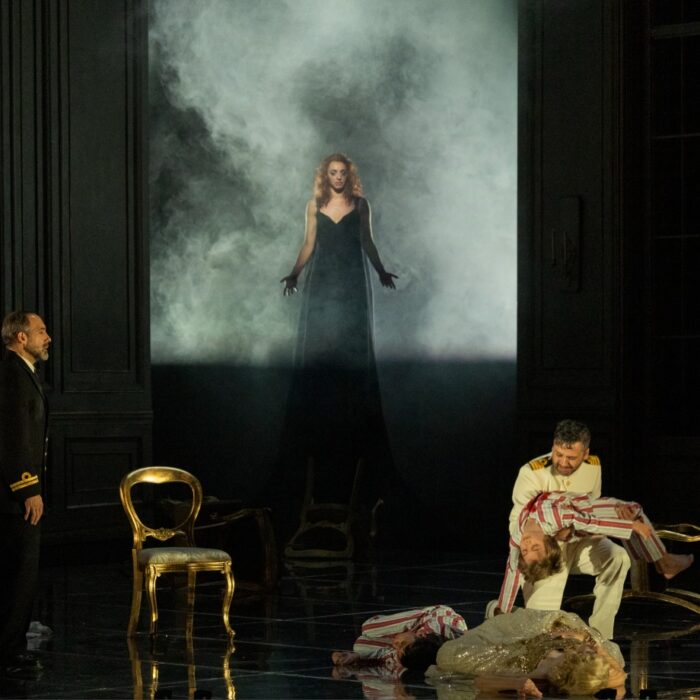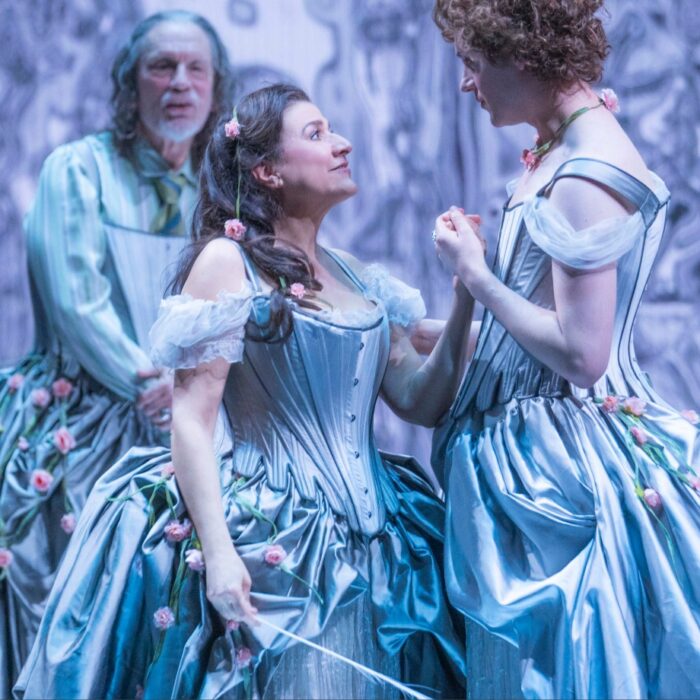
Criticism on Fridays: Safety First?
How Opera Houses Have Adapted to the New Balance of Safety Requirements & the Political Decisions of the Governments of Different Countries
By Polina LyapustinaEvery Friday, Polina Lyapustina delivers a short essay on some of the most essential topics in the industry with the intent of establishing a dialogue about the opera world and its future.
This year, the most active and fanciest part of an opera season revolved around the opening. The theatres didn’t want to take many risks, so they put on the loudest premieres as soon as they could finish up with all the preparations.
Meanwhile, officials in almost every country, seeing progress in vaccination rather than a drop in the morbidity rates (the EU, for example, has announced that more than 70 percent of adults were fully vaccinated, while without proper restrictions in most of the countries, the cases are higher they were over than the last year) promised that this year there would be no enforcement of strict quarantine measures.
As a result, the first weeks of October brought numerous updates from every continent. And I expect this autumn to be turned into a testbed for different approaches that performing institutions can use during the pandemic.
Just recently, the Italian government announced that theaters can now reopen at full capacity. Wearing masks will remain mandatory, and only people with green passes will be allowed to venues. The main problem for theaters, however, revolves around how to actually fill the halls since people are not yet ready to return to their usual habits. For the most concerned (which is now synonym to conscientious), mass events don’t seem timely yet. The safety problem in this case is that even at a time when masks regulations were extremely strict in Italy, and you couldn’t even wear a cloth mask, people sitting at least two seats apart from each other removed their masks once the lights were down. The COVID-19 rates are now quite low and stable, so I guess the success or failure of this solution will be visible soon.
In Germany, the government also slowly loosened restrictions. But the capacity so far will remain at 50 percent with a possible increase soon. Masks and COVID-19 certification are mandatory. Also, this country has put a lot of effort into improving the ventilation of the venues and common regulations in the venue’s shared spaces. Together with the conscious behavior from both the administrations of the theaters and the audience, the regulation in Germany feels the most safety-oriented. The main question one might have is how to ensure sufficient funding for theaters at 50 percent occupancy. Nonetheless, Germany is doing fine here, too. The government still supports the arts, and the theaters receive extra funds from the EU (without insurmountable barriers like in Italy). The real problem is still the support of freelance artists for whom theater reopening and a stable schedule at any capacity are the best update.
Regulations in the UK, where they have over 40K cases daily (and rising), include no limits on audience numbers for events, concerts, and shows. Venues are encouraged to use the NHS COVID Pass to check that people are fully vaccinated (although it is not a legal requirement). Meanwhile, ROH is renewing its usual activities like ROH tours, Live at Lunch series, Sing at ROH, Friends Rehearsals at the full, together with the impressive full-size program of opera and ballet performances.
Conversely, with just about 1,300 daily cases in the country with a population of 45 million people, the Teatro Colón in Argentina is off to a shaky start this October with two performances of Handel’s “Theodora” and several concert events. No program for November has been announced. The country recently lifted strict restrictions and the theater is working at full capacity but with serious restrictions including social distancing, ventilation, masks, and COVID vaccine certification.
What is most surprising is where the big contradictions are coming from – the big states.
The Russian government now trades its famous total control for “no support and no responsibility,” enforcing no severe rules, instead leaving rules that you can interpret however you want. With no evidence of how the Russian vaccine deals with the Delta variant, no improvements in (or even talks about) ventilation of the halls, people are allowed to fill the venues at 50 percent with masks and no proof of vaccination. QR-codes are very unpopular there. But when some regions decided to implement the QR-code system, it was immediately decided to abolish the wearing of masks for those with QR-codes, even indoors. Another tricky situation for the opera houses to navigate is that for now, in 65 out of the 85 regions of Russia, all people over 60, who constitute a significant part of the theater-going audience, must self-isolate. Unfortunately, the statistics of vaccination of older people are not giving any relief to this rule.
In the US, COVID is a political tool, and COVID rules have nothing to do with safety in some states. In several states, full capacity is allowed and no extra social distancing is required when there is proof of vaccination combine with wearing masks indoors. However, others insist that neither masks nor vaccination can be required at all. In this second approach, the capacity must be limited or the safety is totally compromised. The capacity is a key factor for theaters in the US, so they are unlikely to risk it when legal regulation is missing. Freedom may not be a blessing at all in this case.
When the opera season started, we tried to forget about the pandemic and enjoy art. The only question was: can we keep the process live/not online? We didn’t want anymore lockdowns. And for now, our prayers have been answered.
But is it good for us?
People are tired. People are angry. People are not that scared anymore. They demand that they want their freedom back. And the politics tend to give what is demanded by the masses. But let’s think on it a moment – would you give sweets to your kid just because he / her demanded them? Would you allow them to go wherever they want? Not if you care about them. To listen and to know is part of caring. Giving anything they ask for without much responsibility is populism. And when we face it in our adult life, we should think twice about what we are asking for.
Oh, sorry, sure, not us. Not most of the people reading this anyway. It’s not us who demanded this. I bet most of us are responsible and follow reasonable rules. And wash their hands, and vaccinate if possible, and maintain respectable social distance. And yet, we too do not ask enough for what is so needed. Education: the word that lost so much during the pandemic. Education: the main basis of our safety and freedom. That is what would make us bigger and stronger. Put more people on our side, reduce the populism. Increase the common sense in the society. Because it concerns everyone.
It is so easy to blame the Russian government or Trump states… while thinking that our beautiful art is so high above all this hustle and bustle. And how opera houses just need to adapt to the new regulations. The rules are given and we will see the results soon… The numbers will tell us which approach is successful, right?
But these are not numbers! These are people still dying. Thousands! Daily. Whose responsibility is that? Surely, not opera houses!
Or is it?


